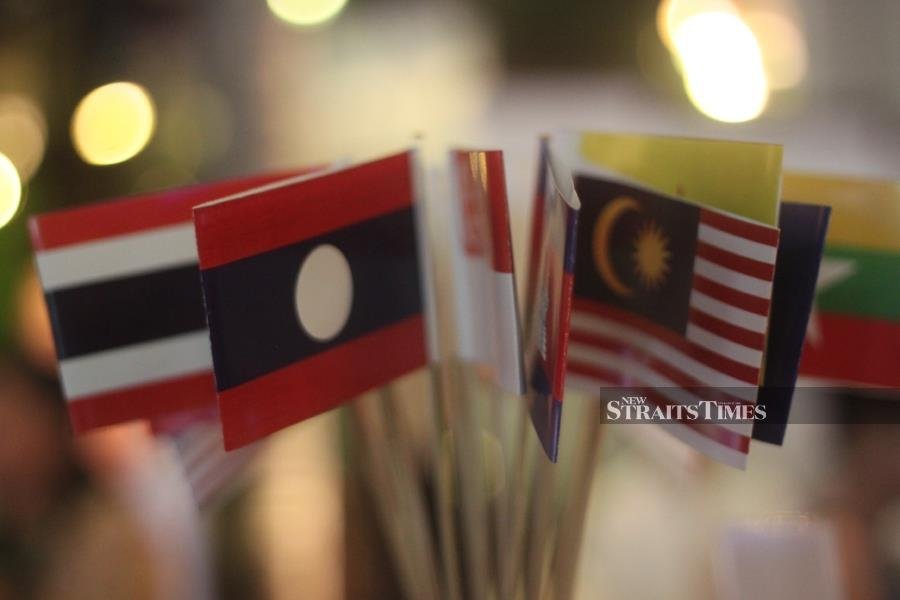Asean should be a unified entity: CARI

By Ayisy Yusof - June 16, 2020 @ 7:14pm
KUALA LUMPUR: Asean stands to gain from supply chain diversification if the region cooperatively acts as a unified entity.
Asia-Analytica managing director and CIMB Asean Research Institute (CARI) senior fellow Pauline Loong said world economies would remain highly interconnected, despite talks of de-globalisation.
She believes globalisation is here to stay and the speed of how the world begins to resume trade flows would depend on the reopening of other markets.
"While China has started to unwind its lockdown, when and by how much its economy recovers also depends on what's happening elsewhere, particularly whether other governments are also winding down their containment measures.
"Goods may be rolling off China's newly-reopened assembly lines but they will not be leaving the factory gate if potential buyers are sitting at home without an income or if the goods cannot be delivered because of transport shutdowns in other markets," she said in a statement.
The statement was in conjunction with CARI webinar under its Covid-19 Economic Recovery Plan Series, titled "How Can Asean Bounce Bank: China's Economic Trajectory and Asean: The New Abnormal: Navigating the Post-Pandemic World".
Moderated by CARI chairman Tan Sri Dr. Munir Majid, the discussion centred on China's economic recovery and how it would shape the new normal, and how Asean can embark on a robust economic recovery path.
Loong expects the recovery for the Chinese economy in the remaining months of 2020 to be slim and said 2021 could prove to be the turning point.
The Hong Kong- based research consultant said it is vital for the China leadership to ensure economic recovery is on course and to have the political determination and policy tools to achieve that goal.
"It is not often appreciated that as a command economy, China is equipped with more than the conventional market tools to boost growth. It can steer bank lending to troubled sectors, impose firewalls to prevent capital flight, and put subtle pressures on corporates to do the right thing by the nation in their commercial dealings," she said.
While China has started to unwind its lockdown, when and by how much its economy recovers also depends on what is happening elsewhere, particularly whether other governments are also winding down their containment measures.
"Goods may be rolling off China's newly reopened assembly lines but they will not be leaving the factory gate if potential buyers are sitting at home without an income or if the goods cannot be delivered because of transport shutdowns in other markets," she added.
In the first two months of 2020, Asean surpassed the European and became China's largest trading partner, according to data from the Chinese General Administration of Customs.
The data revealed that trade between Asean and China during the period increased 0.5 per cent year-on-year to US$85.3 billion, amid falling trade with most other trading nations as a result of the Covid-19 pandemic.
Loong said Asean had hit a sweet spot during this pandemic even before the onset of the US-China trade war.
This is because Asean member states have already benefited from structural shifts in international trade and commerce, which have been hastened due to the pandemic.
"The change in risk perceptions worldwide and the accelerating trend in supply chains diversification and regionalisation have put the spotlight on Asean as an investment destination," she explained.
However, she said Asean's longer term challenge would be in successfully dealing with the tectonic shifts underway in trade, finance and global alliances.
"Whether it can leverage its strength for more advantages in a multi-polar world ultimately rests on the group's willingness to act as a truly unified entity," said Pauline.
Munir echoed Loong's insights, particularly on the need for Asean unity during this time of economic uncertainty.
He noted that the performance of a better integrated regional economy in Asean and East Asia has become critical in the recovery process.
"It is important that we are able to distil post-Covid-19 China without the noise and distraction which tend to judge the regime in that country and not the economic activities that are beginning to stir again.
"There are opportunities of investment relocation out of China of course, but there is also the huge Chinese market," he said.
